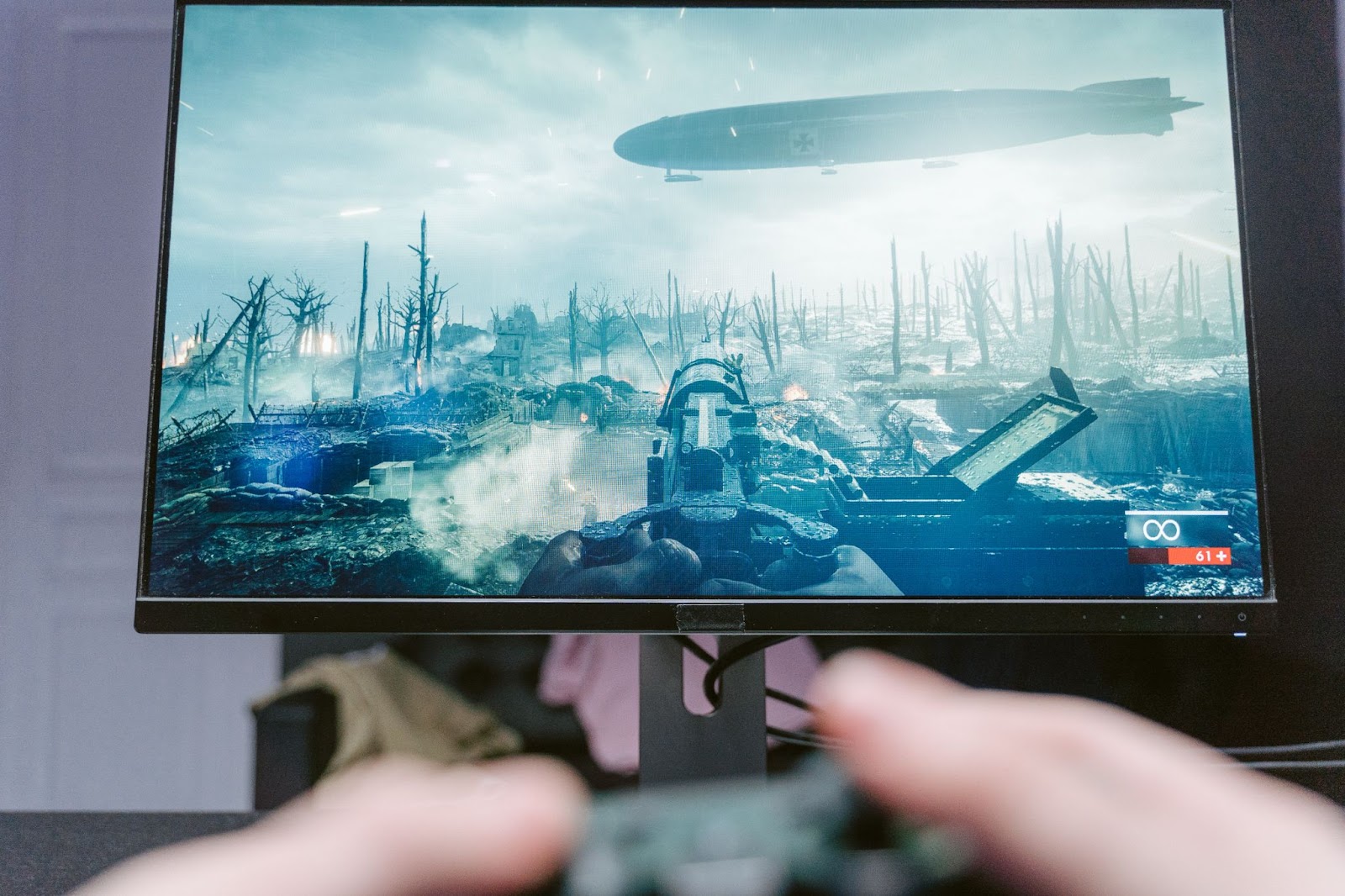
The International Olympic Committee has recently sparked a debate about the possible inclusion of esports in the 2024 Paris Olympic Games, bringing attention to an industry that is rapidly gaining traction and popularity worldwide. As more and more people become fans of esports and its rapidly growing scene, reflecting a talent base that is increasingly international, the conversation has shifted from “Will esports be included in the Olympics?” to “When will it happen?” In today’s digital age, esports has become a phenomenon. It is estimated that worldwide eSports revenues are expected to grow from US$700 million in 2017 to US$1.5 billion in 2020 thanks to increased investment from many sources such as sponsorships, advertising and media rights. The rapid growth of this industry begs the question: With an established fan base and attractive economic outlook, is it likely for epsorts to make its debut in the 2024 Paris Olympics? Analyzing current trends and understanding historical context will reveal clues to differentiating between potential likelihoods while also shedding light on what could influence Olympic inclusion of Esports by 2024.
Will Esports be in The Olympics 2024
The concept of esports has been around for decades and it is a rapidly growing industry. The video game industry has evolved immensely and the trend is continuing to grow. Esports has emerged as a major competitive activity, with professional, semi-professional and amateur players from all over the world. Allowing esports into the 2024 Olympics could be another advancement for the industry. Let’s take a look at the history of esports to better understand why this might happen.
Evolution of Esports
The esports industry is one of the fastest growing sectors in the entertainment industry, having evolved from its humble beginnings as almost exclusively video game competitions. Esports (electronic sports) is, at its core, a form of competition where two individuals or teams face off in video games for cash prizes and glory.From early LAN events to massive global championships, we look back on the evolution of esports and how it has become such an integral part of modern society. Esports began in the early 1970s with the popularization of archaic video game consoles like the Magnavox Odyssey 2. In this era, top players like Billy Mitchell became celebrities by proving their skills through score displays and published high scores in magazines. These formats evolved over time into competitions hosted at conventions where top players faced each other and competed for prizes like Atari 2600 consoles or arcade games.
As time passed and technology advanced so did gaming competition formats; however, it was not until 1997 that esports was truly embraced on a large scale. This year saw the birth of cyberathlete leagues such as Cyberathlete Professional League and World cyber Games, which grew significantly over time to attract crowds of tens of thousands and prize pools that rival those found in regular sports leagues across the globe. In recent years esports has gone from strength to strength with major organizations now hosting year-round tournaments featuring some of the world’s best talent from around the world who compete for enormous prizes that are funded via corporate sponsorships, tournament organizers such as ESL (Electronic Sports League), Twitch viewerships ,and live ticket sales for international events. There have also been proposals by some governments that are pushing against international sports federations to have Esports included as an Olympic event by 2024, thus further validating its success on a global stage.
Esports in The Olympics
Esports has rapidly risen in popularity, becoming a legitimate professional sport with teams, tournaments, and fans throughout the world. Over the years, there have been various discussions about the possibility of eSports being included in the Olympic Games. In 2019, the International Olympic Committee (IOC) and International e-Sports Federation (IeSF) agreed to work together to determine whether esports can be admitted into the Olympic movement. The IeSF has expressed hope that one or more esports titles will be added to the 2024 Paris Olympics. However, this does not guarantee that any specific game or title will be accepted as a medal event for competitions for Paris 2024. Instead, this agreement serves as an important first step towards including esports and digital sports on an international scale in future Olympic games. In order for Esports to become an official part of the Summer Olympics, it must follow a rigorous process involving different steps such as evaluation and consideration by several organizations: IOC Sports Department – they are responsible for looking at existing sports disciplines involved in physical activity and athlete performance; Jacques Rogge Sport Accreditation Center – they verify if proposed disciplines meet all IOC qualifications; Organizing Committee of Paris 2024 – they will have to decide what elements should go into their program by 2021 just before final approvals according to their standard process; Executive Board of IOC – will make final decision over what should be included within Olympic Program after considering all input from stakeholders, including IeSF as well participants sport federations.
Due to these steps needed prior to final approval from IOC’s Executive Board of Esports entering into Summer Olympics is still uncertain but progress looks optimistic in favor of historic inclusion. Esports fans wait with anticipation for further news regarding potential inclusion of their beloved discipline into a world famous event – The Olympiad!

Factors Affecting Esports in The Olympics
The International Olympic Committee (IOC) has recently expressed an interest in the inclusion of Esports in the 2024 Olympic Games. While there is no guarantee that Esports will be featured, the IOC has outlined a set of factors that will contribute to their decision. These include concerns over the level of player representation, the enforcement of fairness and anti-corruption measures, and any possible risks or implications of adding Esports to the Olympics. In this article, we will explore these factors in more detail.
International Olympic Committee
The International Olympic Committee (IOC) holds ultimate responsibility in determining whether or not esports will be included in the 2024 Olympics in Paris, France. There is no definitive answer yet and one will likely not be provided until at least the end of 2021 when the IOC meets to decide on which new sports, if any, to include in the 2024 games.
To make their decision, many factors will be considered by the IOC including:
-The impact that esports would have on Olympic values – Specifically, how it’s viewed within traditional sports and how it can help promote gender equality and diversity.
-Games included must be level 4 or above as defined by the Global Association of International Sports Federations (GAISF). Level 4 games are those that are supported by a national federation and recognised international federation.
-The potential for viewership – A significant factor influencing acceptance will depend on viewership across television and digital platforms during competitions. Olympics officials need to ensure there is sufficient interest leading up to the 2024 event with events such as an Esports World Championships being held several times before then granting esports greater legitimacy among stakeholders along with guaranteed viewership numbers prior to acceptance of its inclusion into the Olympics.
-Integrity Risk – The introduction of esports has meant questions around integrity have risen due to certain titles requiring digital manipulation in order for one team to perform better than another e.g Match Fixing/Manipulation which has prompted calls for anti-corruption teams within video gaming leagues who investigate suspicious behaviour related primarily match fixing cases but also other issues such as doping violations, betting irregularities etc
Esports Organizations
Esports organizations are the driving force when it comes to esports being included in the Olympics. They not only have the experience and expertise to transition from recreational competition to an Olympic stage, but also the desire to have esports be taken more seriously as a professional sport. These organizations include Esports League of Legends Championship Series (LCS), Overwatch League (OWL), Counter-Strike: Global Offensive, Dota 2, and others.
These organizations show full commitment across all levels by providing funds that bolster amateur and school tournaments; they pay players’ wages; they establish rules and regulations on athlete representation; they organize world championships and global leagues; they even launch “esports academies” – like other traditional sports programs – that aim at creating a path for young athletes who wish to pursue esports professionally. By doing so, these organizations also ensure fairness in larger competitions such as the Olympics. The support of commercial partners such as Intel is also paramount for esports progress as part of Olympic events. Companies that have already committed significant financial resources towards ensuring credibility for this new industry will be most likely continue their support when it comes time for esports teams and individual athletes to compete on an international Olympic stage in 2024.
Esports Fans
An important factor in the success of esports at the Olympics is the reaction of fans. Esports fans have embraced a wide variety of games and are eager to share their passion with others.The majority of esports fans come from younger generations and are more tech-savvy than traditional sports fans, with many belonging to Generation Z. Drawing from this group could prove beneficial for Olympic sports, which have seen a lack of engagement from younger generations in recent years. Engaging this audience could help increase attendance for events, as well as raise awareness on broadcasting platforms such as Twitch and YouTube. Esports is also an ideal market for brands looking to target and engage young audiences through marketing initiatives. For instance, Red Bull has partnered with major tournaments and established a gaming team which showcases the brand’s efforts to tap into the growing esports fan base. Additionally, major companies including Intel, Nike and Coca-Cola have announced partnerships with esports teams or event organizers in 2019 alone, with ever more brands entering the market as it continues to grow exponentially every year. Esports also offers potential opportunities for sport sponsorships at a reduced cost compared to traditional sports, making it an attractive option for investors looking for new ways to engage young audiences on their platforms. These sponsorships can range from product placements during tournaments, branding agreements or collaborations between key players in the industry such as headset makers like Sennheiser or tournament organizers ESL Gaming Network.
Pros And Cons of Esports in The Olympics
The idea of including esports in the 2024 Olympics has been gaining considerable traction recently. It is expected that esports events will be added to the Olympics in some form or other. However, there have been some debates over the potential risks and rewards of including video gaming in the Olympics.
Let’s take a look at both sides of the argument.

Pros
The introduction of esports to the 2024 Olympics has been met with both excitement and apprehension. It’s an opportunity for the world to recognize the skill of players around the world, but there are also potential problems that may occur. To evaluate whether esports should appear in the Olympics, it is important to look at both sides–the pros and cons–of this issue before making a decision.
Pros:
1. Increased interest in the Olympics: As more gamers(especially among younger people) gain access to simple streaming technology, esports can generate immense interest from those who are not well-versed in sport. As fans come in from all walks of life, it can bring additional attention and growth for Olympic viewership.
2. Acknowledgement of highly-skilled players: Esports professionals have dedicated a great amount of their time to become top-level gamers, even facing rigorous training regimes like that of conventional athletes. Including these skilled gamers within Olympic competition may help increase public acceptance and recognition to gaming as an organized sport.
3. Expansion of global market opportunities: Allowing multiple different games into Olympic events can capture more public attention and encourages increased investment from global markets looking for opportunities within gaming industry
Cons
The potential challenge with bringing esports into the Olympics is that it is more difficult to police than traditional sports due to the uncertainty around cheating. Traditional sports rely on referees and umpires to enforce the rules of each respective game, but esports events do not have this level of oversight.
In addition, esports players are not subject to the same drug testing requirements of Olympic athletes and certain doping performance-enhancing drugs commonly used in professional gaming can’t be detected through routine procedures. While some professional gaming organizations will administer sophisticated testing regimes to their players, they fall short of the measures often employed by the IOC. Another point of contention with regard to the inclusion of esports into the Olympic Games is that athletes who engage in traditional sports (for example sprinters or weightlifters) have trained for years before being identified as potential competitors for their countries whereas esport athletes may have only been playing for a couple of years before competing at an international level. This raises questions about fairness and whether there should be qualification criteria in place for potential e-sport Olympians that parallel those already available for traditional sport athletes.
Conclusion
The IOC currently recognizes esports as a sports activity and from the signs that have been observed, it is very likely that esports will be included in the summer Olympic games in 2024. This is due to the growing popularity of esports leading to thousands of professional players, organised leagues and tournaments around the world. It has also been reported that early discussions with potential hosts of the 2024 Summer Olympics were about staging esport events as part of medal-awarding competitions in Paris. The first experiments by IOC with esports like recognition came via demonstration events at 2018 and 2019 Asian Games. Although there has been skepticism from athletes across varying sporting disciplines, it cannot be denied that Esports bring different aspects to an international sports competition than traditional sports do which could potentially provide fresh impetus and new dimensions to those games. Considering all these factors combined, it appears highly likely that Esports will soon become part of an Olympic event such as the Paris 2024 Olympics.




